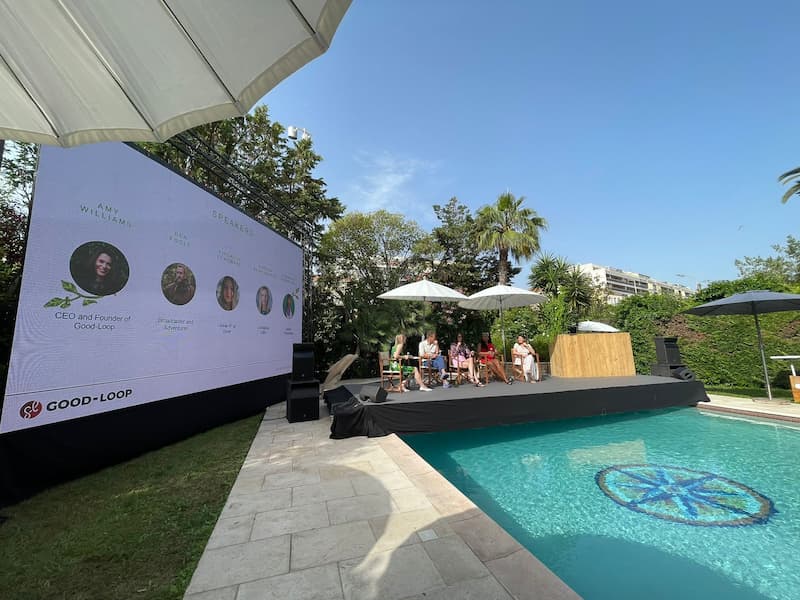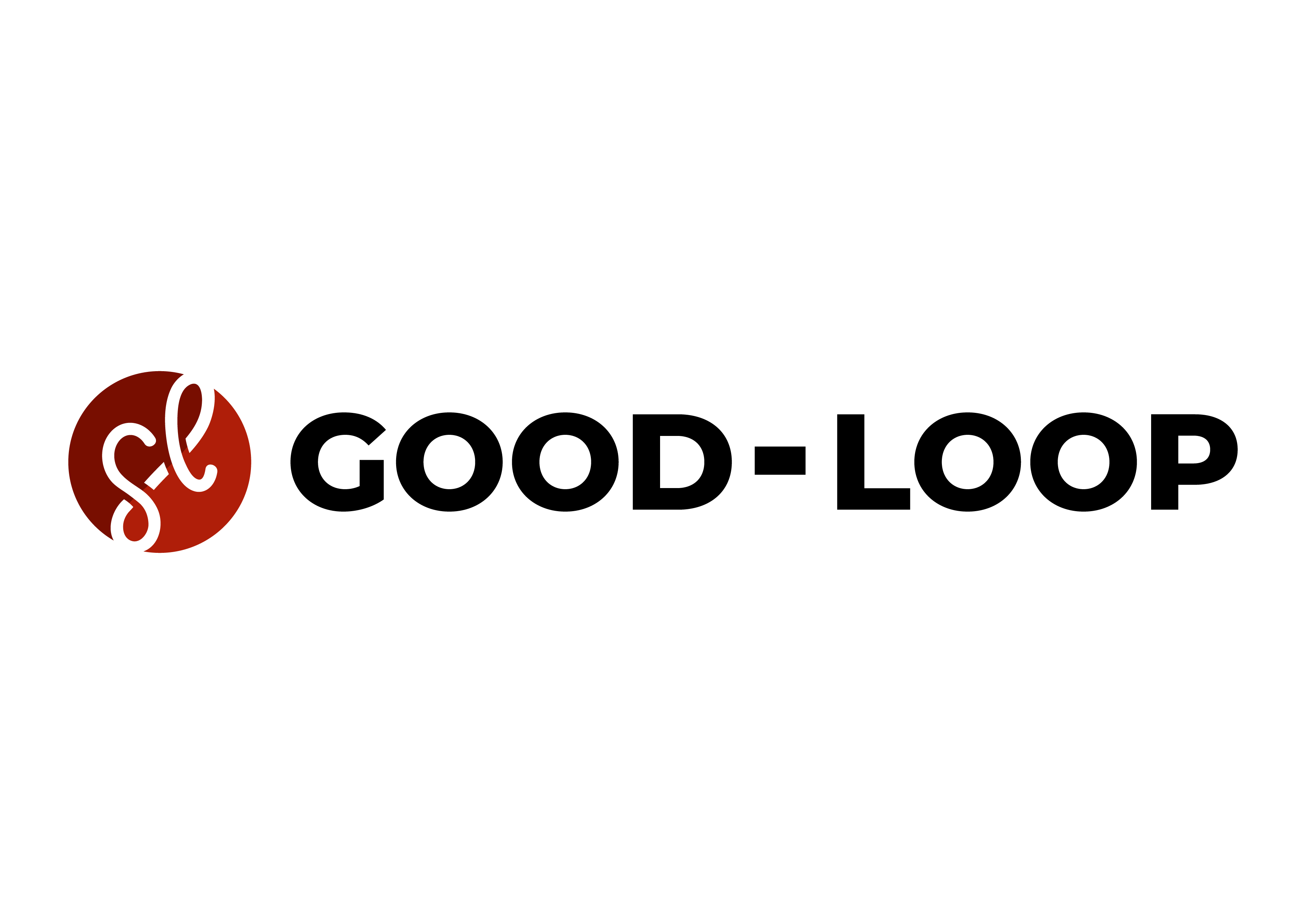Good-Loop's founder and CEO Amy Williams was today (Tuesday, June 21) joined by a diverse group of experts to discuss how we can ensure brands are putting their money where their mouths are and turn their investments into real action that's positive for the planet?
Hosted at the Contagious Villa in Cannes, for the "Pretty Green Lies" debate Amy was joined by:
- Ben Fogle - Renowned broadcaster and adventurer - "We're not saving the planet, we're saving ourselves"
- Shakaila Forbes-Bell - Fashion researcher and fashion psychologist - "People need to balance how they fit into the cultural zeitgeist, but they also want to be sustainable"
- Firdaous El Honsali - Global VP at Dove - Unilever - "Brands should be honest about where they are on their sustainability journey. Acknowledge how far you've come and what still needs to be done."
- Katrina Stirton Dodd - Contagious editor-at-large - "There's so much more to lose by not trying"

Here are some of the highlights:
Mind the (sustainability) gap
Eight out of 10 consumers say sustainable practices and commitments are important considerations when making purchase decisions. Unfortunately, some brands seeking quick revenue wins are resorting to greenwashing - a deceitful marketing gimmick intended to mislead consumers who prefer to buy goods and services from environmentally-conscious brands. This gap between perception and reality is causing frustration and confusion among consumers, who are simply trying to do the right thing.
"We're shielded from the real-world impact - [it] took a long time to see through the greenwashing," said Fogle.
But what about marketers? According to the CIM, 49% of marketers are wary of working on sustainability campaigns driven by anxiety around greenwashing and a lack of training around sustainability. However, they're still expected to deliver, with 76% of marketers reporting being involved in some form of sustainability work despite no formal training.
This means we have a toxic situation where brands are not necessarily fully invested in becoming more sustainable, yet their marketing team or agency are being told to promote the brand as such.
When it comes to purpose marketing, brands need to remember they're still speaking to individuals.
"A lot of the time people are thinking about themselves. Brands need to speak to the individual consumer so they understand what it means for them," said Forbes-Bell, a fashion researcher and fashion psychologist.
What steps can brands take to overcome greenwashing?
As marketers there are many things we can do to avoid, or reverse greenwashing. Here are the top tips from today's panellists:
- Be authentic and start with action
- Move away from old habits that focus solely on performance, be more pragmatic and measure progress
- Don't try to own sustainability - it's not a branding exercise, it's a survival exercise
- Don't be afraid to ruffle feathers and talk boldly - check out this great campaign from Oatly that does just that!
- You are a marketing expert, not a sustainability expert - ask experts to give you a critical point of view on what you're doing and learn.
"NGOs are great experts to speak to - just 2% of philanthropy goes to sustainability NGOs. It starts with the product, an authentic position and partnering with experts to deliver," said Williams, Founder & CEO, Good-Loop.
It's a journey
"It's really important to understand you won't get it perfectly right at the start, but you have to aim to get it right at some point. We need to acknowledge this is part of a journey. We need to be transparent," said El Honsali, Global VP at Dove, Unilever.
This idea was illustrated further by Amy later in the panel:
Even famously ethical companies like Innocent can get it wrong some times, but the important thing is to keep trying. Their recycled packaging scheme is incredible, and it's better for the planet, but that doesn't make it "good for the planet". #PrettyGreenLies #CannesLions2022 pic.twitter.com/uESwQUPVDA
— Good-Loop (@GoodLoopHQ) June 21, 2022
4pm vs. 8pm
There are simple steps brands can take now to reduce the carbon footprint of their digital advertising - sometimes even small changes can make a big difference:
"There's so many little easy wins. If it can be measured, it can be changed." - @GoodLoopAmy, at the @contagious villa.#CannesLions2022 #PrettyGreenLies pic.twitter.com/Ac6WHrGlss
— Good-Loop (@GoodLoopHQ) June 21, 2022
Understanding consumerism in 2022 and beyond
We're bombarded with advertising messages every day telling us to buy products because they will provide us with benefits. Yet at the same time, it has been proven that consumerism has a direct link to anxiety and depression.
The advertising industry has helped brands transform consumers' "wants" into "needs" and we have a responsibility to help reverse this and help consumers make more informed choices.
El Honsali, Global VP at Dove, Unilever, has this advice for marketers: "When crafting new campaigns, make sure you ask questions about the actions behind the campaign. Ask [these questions] in a positive way - 'what is biodegradable'? and 'what's your journey? etc' . [Sometimes] you might be very positive about the output of these conversations, other times not. If not, go further - you have the power to say it's not strong enough yet."
If we do one thing today
Our key takeaway from the session was best put by Fogle:
"We need to change the message from let's save the planet to let's protect the planet. The planet's not going anywhere - we need to save ourselves."

